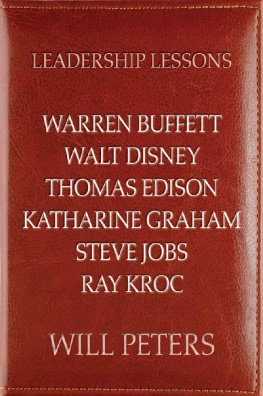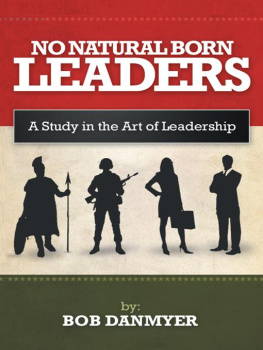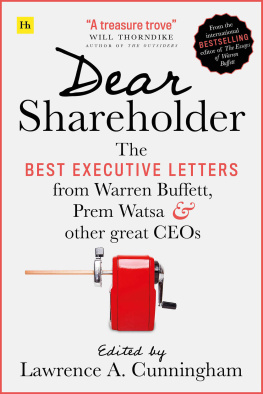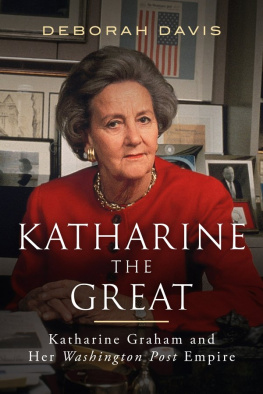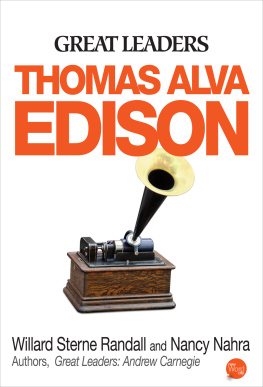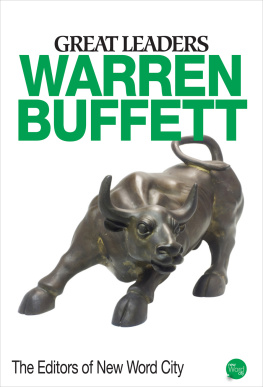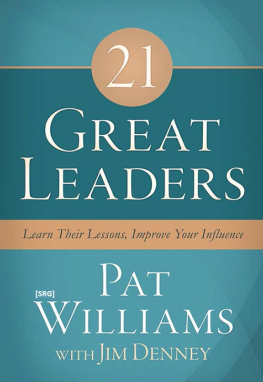Leadership is a slippery concept. There are almost as many definitions of leadership as there have been leaders in world history; the descriptions range from General George Pattons bellicose Lead me, follow me, or get out of my way to the whispery counsel of the Chinese sage Lao-tse: A leader is best when people barely know he exists. When his work is done, his aim fulfilled, they will say: We did it ourselves.
The confusion is appropriate. As this book will show, leaders come in so many flavors that no single description could cover them all. In real life, situations are always changing, and different circumstances call for new varieties of leadership. The traits needed in a battlefield commander may or may not be appropriate for a CEO fighting off a hostile takeover; what a volunteer has to do to run a support group for victims of gun violence cant be compared with whats expected from her sister, who heads high-tech development at a Silicon Valley startup. Theyre all leaders, but they will be judged by different standards.
Yet we all sense rightly that by studying successful leaders, we can learn useful lessons in becoming leaders ourselves. Almost surely, no readers of this book will be called on, as Warren Buffett was, to rescue a floundering investment-banking firm whose demise could have disrupted the whole world of finance. None of us will bet their business, as Katharine Graham did, to uncover a scandal that drives an American president to resign. But knowing what Buffett and Graham did in those crises, and how and why they did it, adds to our knowledge of the tactics and strategies available when we face our own lesser problems. Knowing how Thomas Edison dealt with deafness and his lonely childhood can inspire and help us to overcome our own handicaps. The late-blooming Ray Kroc never opened a restaurant until he was fifty-two, but that restaurant became the fast-food colossus McDonalds. So he can show us how he did it, and we, too, can persevere and win in the end.
Even within narrowly defined categories, leaders vary widely in talents, character traits, and individual styles. The leaders chosen to make up this book, five men and a woman, all operated in the wide field of business. But the lessons they teach can be antithetical, even contradictory. Buffett never made an investment without a margin of safety to protect him if something went sour, but Walt Disney repeatedly perhaps compulsively gambled his whole empire on ventures almost universally expected to fail. In deciding which example to follow, we have to be selective, assessing our own strengths and weaknesses honestly: Are you naturally cautious or do you have the guts of Disney and Graham?
In drawing the lessons each of these leaders offers, I have skipped a few obvious traits that all of them shared. All six, for example, persisted through obstacles and opposition but ended in triumph. In varying degrees, all were workaholic perfectionists who sweated the details. Like them, all of us will have to work hard and long and overcome hardships and our own shortcomings to have any hope of achieving great success. It goes without saying that tenacity and hard work are part of the dues that leaders pay. Luck plays a part, too. At key points, all six of our leaders benefited from lucky breaks. But they worked hard for that, too.
None of them conformed to conventional wisdom; all chose their own distinctive paths in life. It may dismay most parents to realize that four of the six Edison, Disney, Kroc, and Steve Jobs were dropouts from school. Most of them put their family lives second to their obsession with their work. Disney, Edison, and Jobs were singled out as harsh taskmasters and demanding bosses, but none of our leaders were easy to work for; of them all, only Buffett and Graham could actually laugh at themselves.
Just two of the group Edison and Jobs had a claim to the label of genius. They set out purposely to change the world by making things no one had imagined wanting, and they made it happen. Fortunately, as the rest of them prove, you dont have to be a genius to be a winner: Disney and Kroc had a well-honed sense of public tastes and appetites; Buffett and Graham were smart, independent, and brave. But all of them changed history.
Few of us are geniuses. But we can all learn to analyze and understand the world around us. And if we see it clearly enough, with the help and through the eyes of these great leaders of the recent past, we can also begin to turn it to our own advantage. Thats another definition of winning and part of what sets real leaders apart. You can do it, too, and the purpose of this book is to help make that happen.
Good luck.
Every investor knows and reveres Warren Buffett - the Oracle of Omaha, the rumpled, plain-spoken financial genius whose talents and homespun precepts have made him one of the wealthiest people in the world. He avoids bubbles, whether in technology, housing, or complex financial instruments. Buffetts success, self-deprecating wit, honesty, and humble ways have made him a person we can all learn from and emulate.
Of course, all this comes with footnotes. Buffett is a complex, hard-driven striver. His folksiness, populist politics, and generous philanthropy hide a hard-eyed focus on the bottom line. He can be self-absorbed and even callous, and his personal life raises eyebrows. In his investing, he has said he is governed by three easy rules: One, never lose money; two, never forget rule number one; and three, never go into debt. Yet he has repeatedly broken all those rules and more in a career that has included learning (and often unlearning) dozens of tough financial lessons.
Emotionally abused as a child, Buffett has been physically timid all his life. He dreads confrontations. He has repeatedly avoided firing underperforming managers - only to be prodded to action when their losses inevitably mounted. His public image has waxed and waned - from expert to has-been to elder statesman - and he couldnt have cared less. When he topped Forbes magazines list of the worlds richest people (a status he no longer holds), he was still living in the Omaha house he had bought sixty years earlier. But the Buffett name has become magical: At last count, there are nearly 100 books purporting to draw on his wisdom.
Here, well follow Buffetts journey, from the years of the Great Depression to the pinnacle of his investment fame. And along the way, well assess his principles and precepts to see which ones can be applied by people who arent Warren Buffett.
An Early Focus on Money
Buffetts father Howard, the son of an Omaha grocer, became a stockbroker for a bank in the Roaring Twenties. After the Black Tuesday crash of October 29, 1929, Howard went four months without making a single sale. His wife, Leila, would go along on his calls for moral support, waiting outside the homes of potential clients until her husband emerged to be consoled yet again. Warren, their second child, was born the following August. Within a year, Howard lost his job and his savings when his employer went bankrupt.
With little possibility of work and against all odds, Howard and two partners set up their own brokerage firm. They found customers and prospered by focusing on stocks and bonds in solid, conservative businesses. Thus, Warrens boyhood was never as bleak as that of many in the Omaha of the 1930s. Still, the hard times, dust storms, heat waves, and plagues of locusts left their mark. Warren grew up a cautious child with a steady, focused gaze. He kept his knees bent while learning to walk. And even from his preschool days, he was interested in numbers and money. When he was seven, he asked Santa to bring him a book - William Townsends

